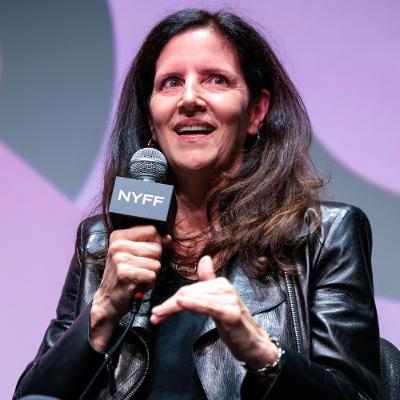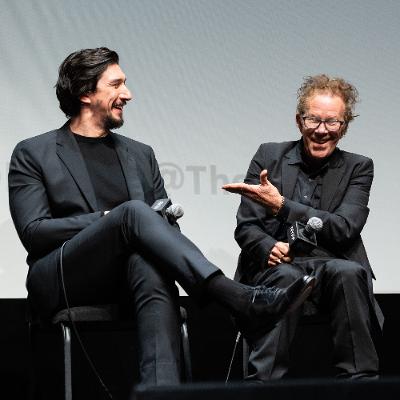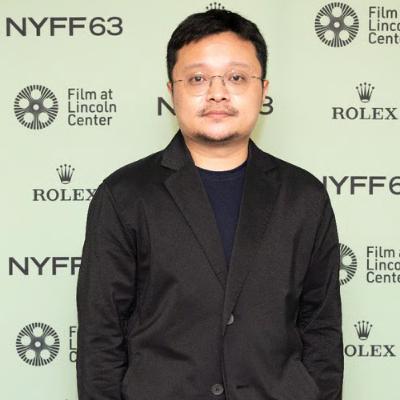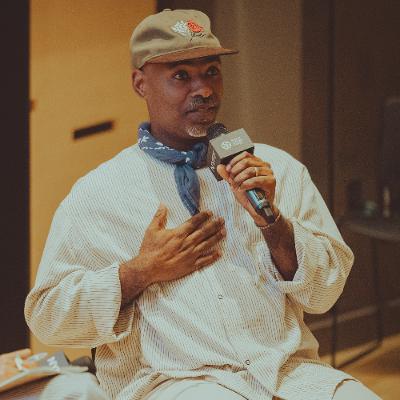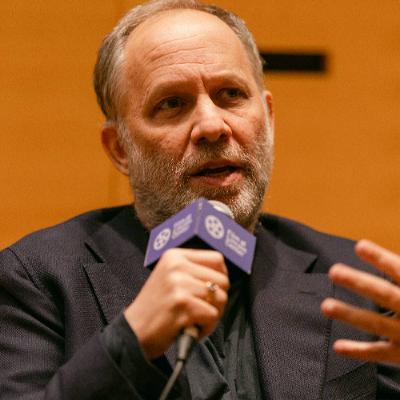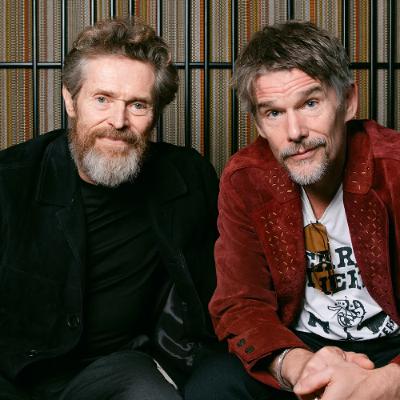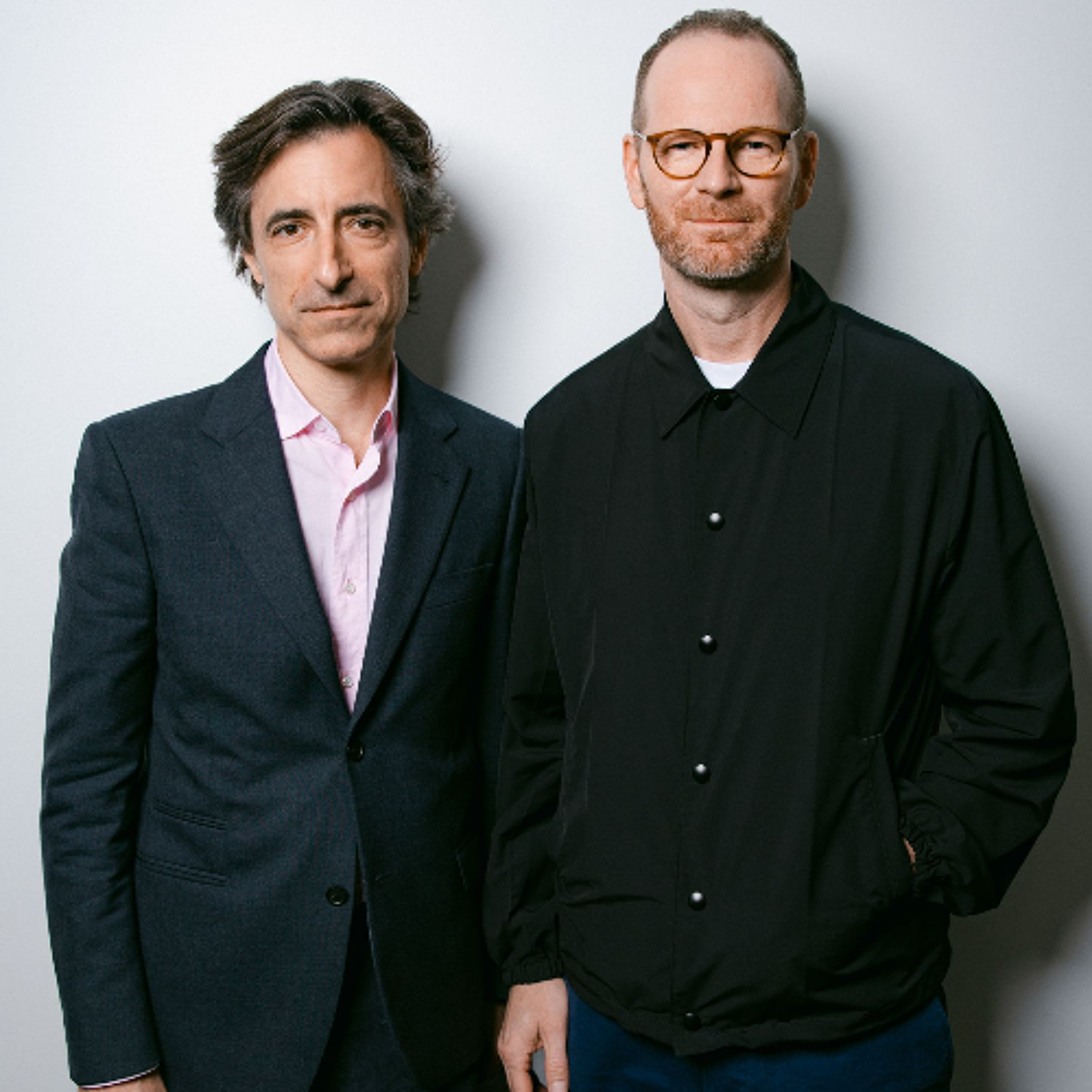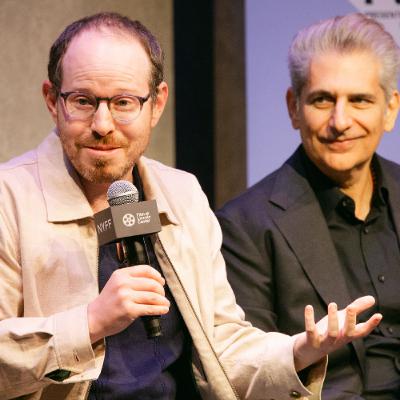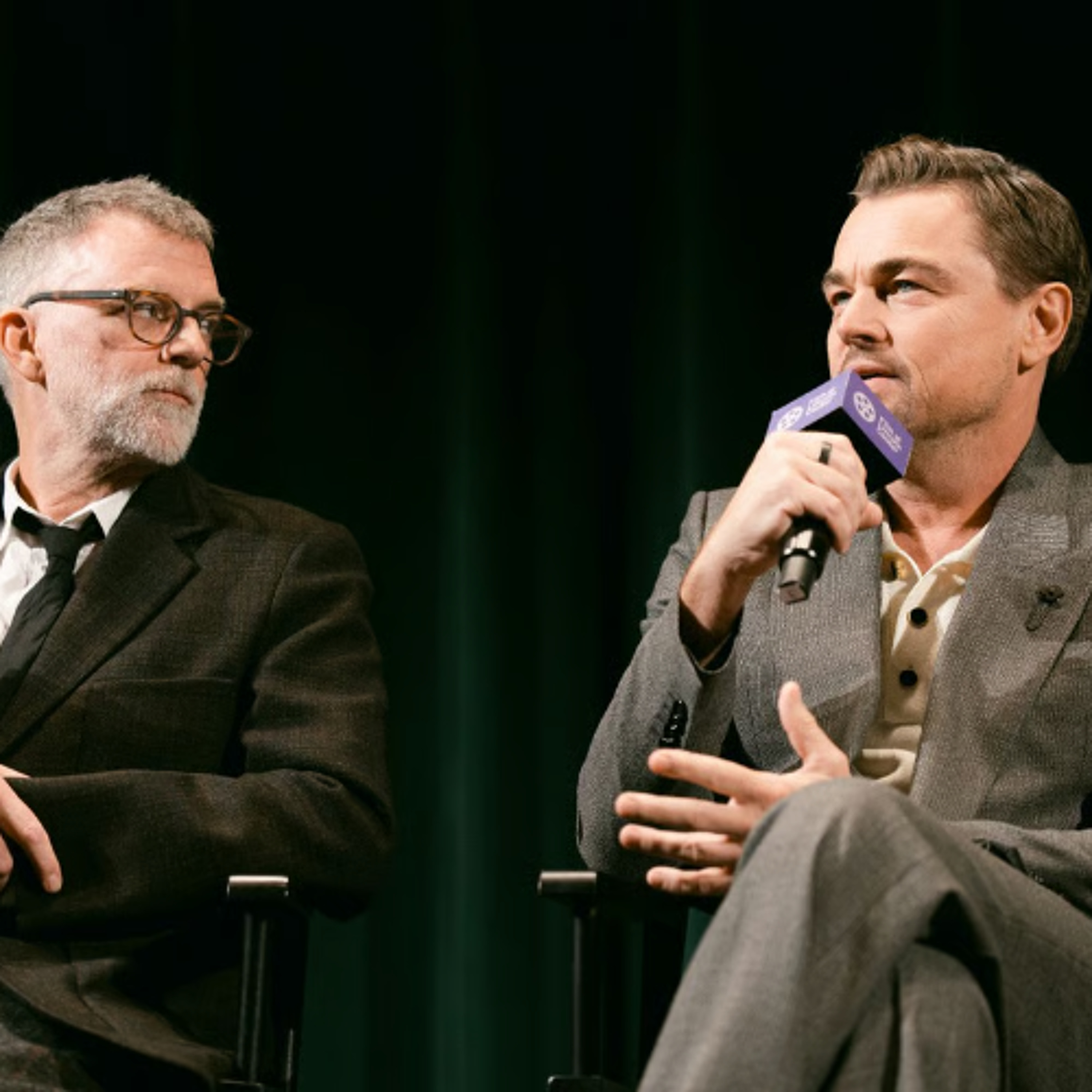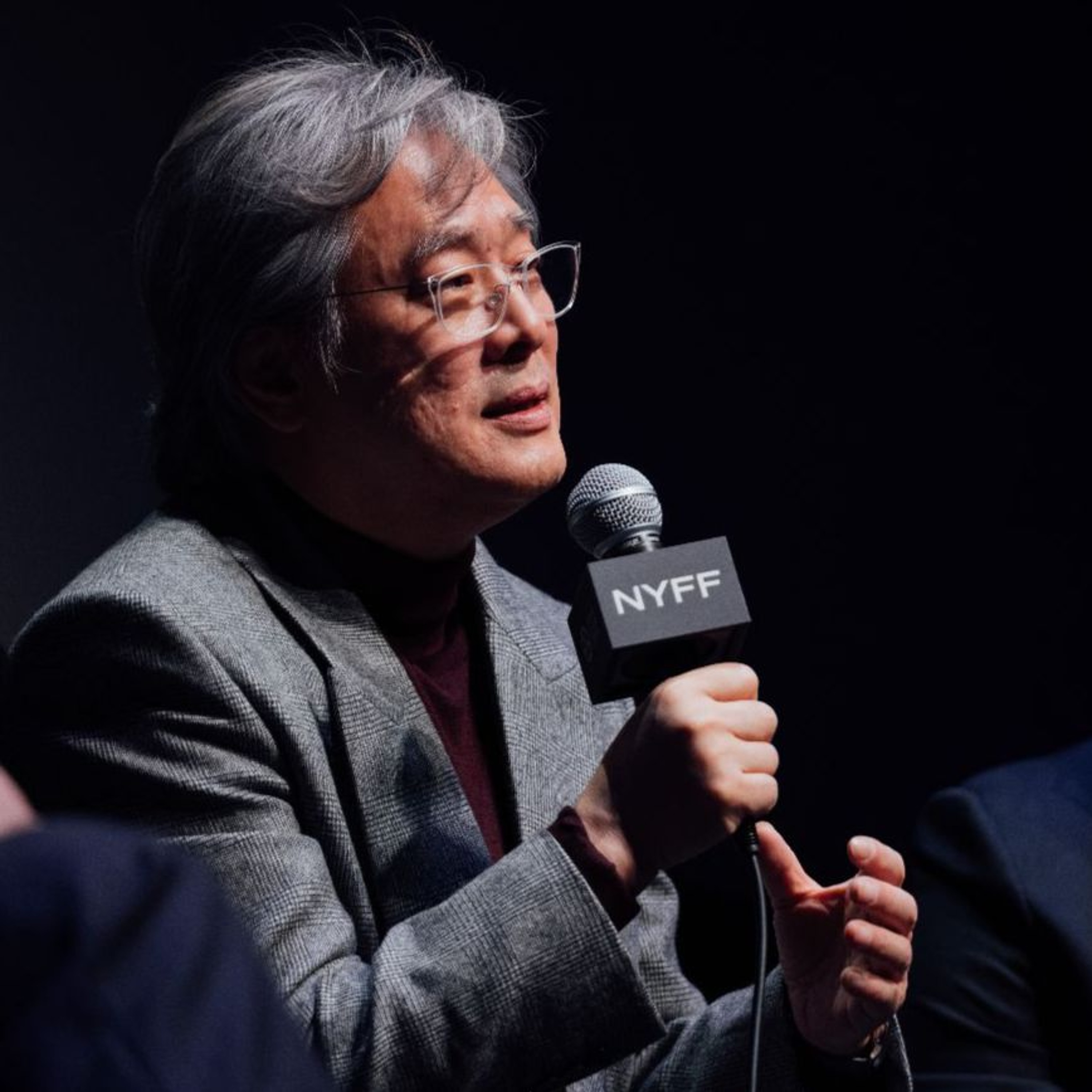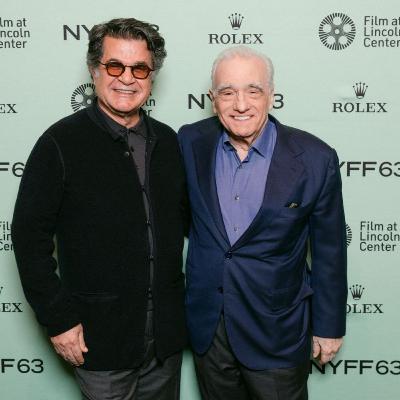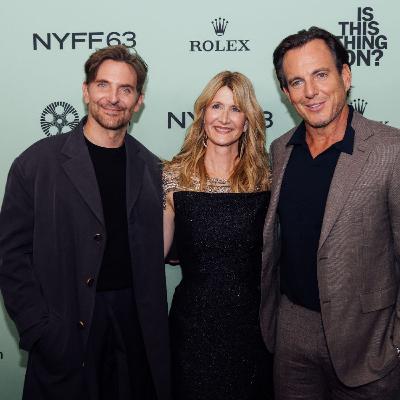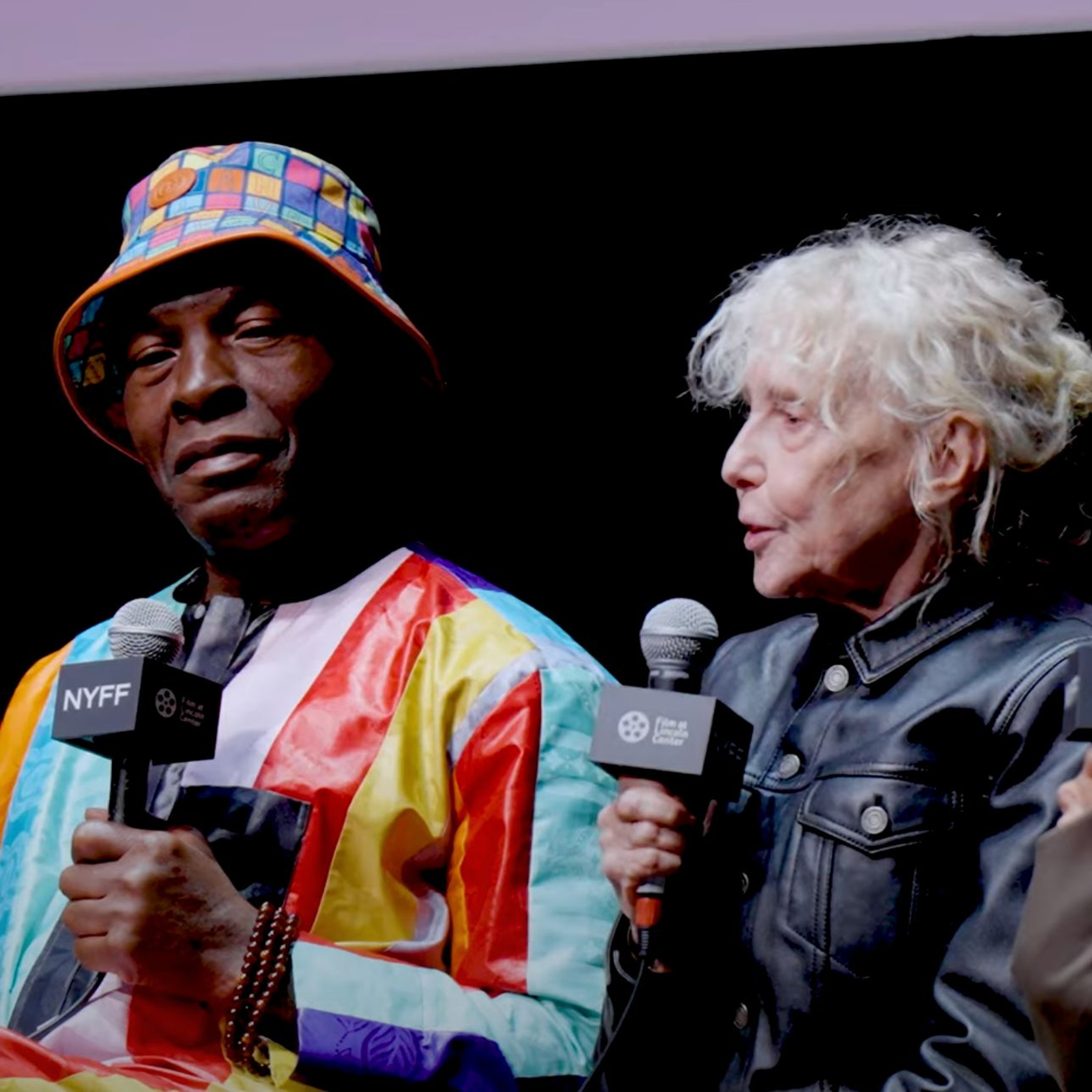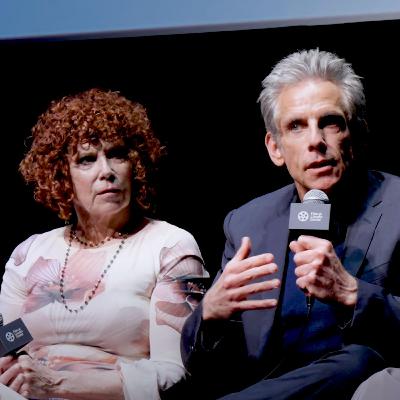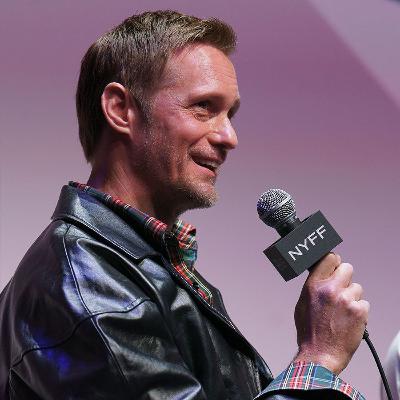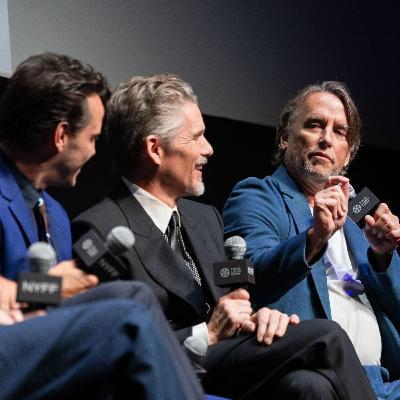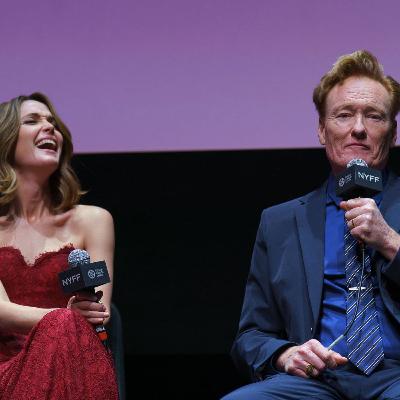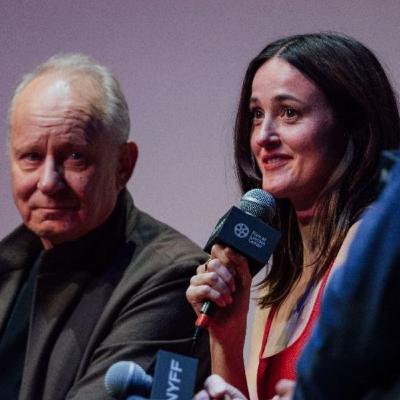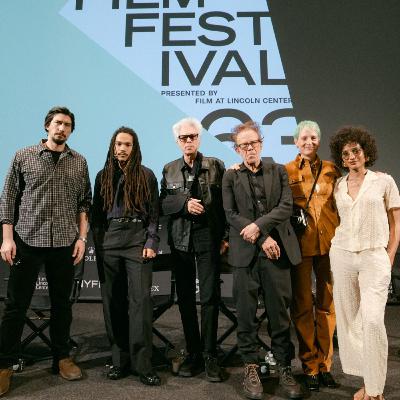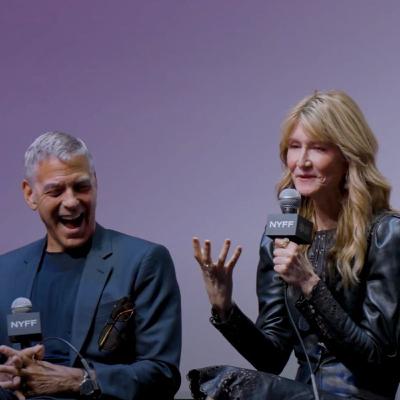Discover Film at Lincoln Center Podcast
Film at Lincoln Center Podcast

648 Episodes
Reverse
This week we’re excited to present a conversation from the 63rd New York Film Festival with Cover-Up directors Laura Poitras and Mark Obenhaus, film subjects Seymour Hersh and Camille Lo Sapio, and producers Yoni Golijov and Olivia Streisand.
This conversation was moderated by NYFF programmer Justin Chang.
Cover-Up will be available on Netflix beginning December 26th.
For the past six decades, Seymour Hersh has been at the front lines of political journalism in the United States. Hersh’s breakthrough reportage has brought to the public’s attention many of the most damning constitutional wrongdoings and cover-ups, from the My Lai massacre in South Vietnam to the CIA’s involvement in plots to assassinate foreign leaders to the Iraq invasion and systematic tortures at Abu Ghraib. In many cases, the revelations of his work have led to governmental reckonings and legal ramifications, yet Hersh, now 88 and surrounded by boxes of files from decades of tireless work, sees himself not as a crusader but as a citizen just doing his job. In this arresting documentary, Laura Poitras (All the Beauty and the Bloodshed, NYFF60) and Mark Obenhaus tell the wide-ranging story of Hersh (whose career has not been free of controversy itself). Though a decades-gestating project for the filmmakers, Cover-Up couldn’t have come at a more crucial moment, when freedom of the U.S. press is increasingly under fire by those in power. A Netflix release.
The 63rd New York Film Festival is presented in partnership with Rolex.
This week we’re excited to present a conversation from the 63rd New York Film Festival with Father Mother Sister Brother director Jim Jarmusch and cast members Adam Driver, Indya Moore, Luka Sabbat, Vicky Krieps, and Tom Waits.
This conversation was moderated by NYFF Artistic Director Dennis Lim.
The NYFF63 Centerpiece selection, Father Mother Sister Brother will open at Film at Lincoln Center on December 24. Get tickets at filmlinc.org/jarmusch
For years, Jim Jarmusch has written, directed, and produced delicate, character-driven films. Winner of the Venice Film Festival Golden Lion, Father Mother Sister Brother is a perceptive study in familial dynamics, a feature film carefully constructed in the form of a triptych. The three chapters all concern the relationships between adult children reconnecting or coming to terms with aging or lost parents, which take place in the present, and each in a different country. Siblings Jeff and Emily (played by Adam Driver and Mayim Bialik) check up on their hermetic father (played by Tom Waits) in rural New Jersey; sisters Lilith and Timothea (Vicky Krieps and Cate Blanchett) reunite with their guarded novelist mother (Charlotte Rampling) in Dublin; and twins Skye and Billy (Indya Moore and Luka Sabbat) return to their Paris apartment to address a family tragedy. Father Mother Sister Brother is a kind of anti-action film, its subtle and quiet style carefully constructed to allow small details to accumulate—almost like flowers being carefully placed in three delicate arrangements.
The 63rd New York Film Festival is presented in partnership with Rolex.
We’re excited to present a conversation from the 63rd New York Film Festival with director Bi Gan as he discusses the NYFF63 Main Slate selection Resurrection.
Resurrection opens at Film at Lincoln Center on Thursday, December 11. Get tickets at filmlinc.org/resurrection
This phantasmagoric dream machine from visionary Chinese director Bi Gan is an elusive yet monumental love letter to a century of cinema. Unfolding over five chapters that feature a dazzling array of styles, Resurrection is a cascade of imagery united by a luminous mythopoetic conceit: in a sci-fi-coded world where people have lost the desire to dream in the hopes of prolonging life, rogue “fantasmers” continue to stoke their imaginations and exist within unreality. From this magical premise, the film sends its ever-morphing protagonist through a series of genres, from Méliès-inflected silent fantasy to wartime thriller to con-artist buddy picture to millennial vampire romance—the latter depicted in one of Bi’s customary, and ever astonishing, single takes. Resurrection is one of the most audacious and ambitious gifts for cinematic thrill-seekers in many a moon.
And before you get to that conversation between Resurrection director Bi Gan and NYFF programmer Florence Almozini, please listen to a brief programmer’s preview of our new retrospective Kōzaburō Yoshimura: Tides of Emotion, now in progress at FLC through December 11!
The conversation is between FLC Programmer Dan Sullivan and FLC Digital Marketing Manager Erik Luers. To view the complete schedule and secure tickets to the retrospective Kōzaburō Yoshimura: Tides of Emotion, please visit filmlinc.org/yoshimura
This week we’re excited to present a special conversation from the 63rd New York Film Festival with members of the filmmaking team behind the Main Slate selection BLKNWS: Terms & Conditions, including director Kahlil Joseph, screenwriter Madebo Fatunde, artist Kaneza Schaal, and filmmakers Savanah Leaf and Raven Jackson, moderated by Jon-Sesrie Goff, Program Officer at the Ford Foundation.
BLKNWS: Terms & Conditions opens in select theaters this Friday, November 28th.
Visual artist and filmmaker Kahlil Joseph’s video installation BLKNWS debuted in galleries and museums across the country in 2019, immersing viewers in the imagined world of a television news network from a Black perspective. After expanding this concept into a short film, Joseph has developed it even further into a feature film, and the result is a celebration of Black life that reconceptualizes and remediates common, corporate notions of journalism. Joseph’s sprawling film is an uninterrupted gush of ideas, mixing newly shot footage and extant media, leaping from fantastical images to historical narratives, collapsing boundaries that often separate documentary and fiction. A multidimensional work of vision and ambition, BLKNWS: Terms & Conditions offers an alternately riotous and meditative compendium of the Black experience. A Rich Spirit release.
The 63rd New York Film Festival is presented in partnership with Rolex.
This week we’re excited to present a special conversation with Peter Hujar’s Day director Ira Sachs. An NYFF63 Main Slate selection, Peter Hujar’s Day is now playing daily at FLC. Get tickets at filmlinc.org/hujar
FLC and Janus Films recently presented a deep-dive discussion into the inspiration behind the film and the connection between Peter Hujar and his deeply felt legacy in New York City. Held in the Amphitheater at the Elinor Bunin Munroe Film Center, this free talk with writer/director Ira Sachs was moderated by Antonio Monda, writer and Artistic Director of the international literary festival Le Conversazioni.
The photographer Peter Hujar, whose images exist in an important lineage and dialogue with the work of groundbreaking gay artists such as Robert Mapplethorpe, forms the center of the latest movie by fearless independent American filmmaker Ira Sachs. Based on rediscovered transcripts from an unused 1974 interview by nonfiction writer Linda Rosenkrantz (played by Rebecca Hall), in which she asked Hujar (Ben Whishaw) to narrate the events of the previous day in minute detail, Peter Hujar’s Day is a mesmerizing time warp, an illustration of the life of the creative mind, the quotidian and the imaginative at once, fully and lovingly inhabited by its two brilliant actors.
This week we’re excited to present a special conversation from the 63rd New York Film Festival between Ethan Hawke and Willem Dafoe, moderated by Film at Lincoln Center programmer Maddie Whittle.
This talk is sponsored by The Hollywood Reporter.
Two films in this year’s NYFF lineup center on artists confronting the passage of time: Richard Linklater’s Blue Moon stars Ethan Hawke as the legendary lyricist Lorenz Hart, fretful and embittered at the prospect of his one-time creative partner scaling the heights of musical-theater celebrity; Kent Jones’s Late Fame adapts Arthur Schnitzler’s novella about a once-upon-a-time New York poet, played by Willem Dafoe, who is intoxicated by the sudden attentions of a coterie of twentysomething would-be literati. Each film taps into extraordinary reserves of wit and melancholy via the contributions of their lead actors, titans of contemporary American cinema and exemplary interpreters of the cultural forces that have defined their respective generations. NYFF was thrilled to bring together Hawke and Dafoe for an in-depth discussion of their craft, their creative philosophies, and their portrayals of aging artists on the brink of an uncertain future.
The 63rd New York Film Festival is presented in partnership with Rolex.
This week we’re excited to present a special conversation from the 63rd New York Film Festival between filmmakers Joachim Trier and Noah Baumbach, moderated by Film at Lincoln Center programmer Maddie Whittle.
This Talk is sponsored by Deadline.
NYFF veterans Noah Baumbach and Joachim Trier returned to the festival this year with a pair of films that explore how artistry, authenticity, and artifice collide in the public and private lives of star actors and famed filmmakers. In Baumbach’s charmingly reflexive Jay Kelly, an aging megastar—played, fittingly, by George Clooney—arrives at a crisis point in his career; haunted by the past and uninspired by the present, he embarks on a somewhat reckless screwball adventure with his entourage (featuring Adam Sandler and Laura Dern) in tow. Meanwhile, Trier’s Sentimental Value finds an acclaimed stage actress (Renate Reinsve) and her estranged movie-director father (Stellan Skarsgård) clashing, connecting, and introspecting over a film project that draws from their complicated lives. Dramatizing the dimensions of modern-day, larger-than-life celebrity with deft humor, both films hone in on the relationships—familial, professional, transactional—that undergird the creative process and industrial artmaking.
Baumbach and Trier joined NYFF63 for a lively, probing discussion of their approaches to writing grounded, lived-in characters, and the collaborations that have shaped their own illustrious bodies of work.
The 63rd New York Film Festival is presented in partnership with Rolex.
Widely hailed by critics, audiences, and artists alike as one of the greatest directors working today, Martin Scorsese—the subject of Rebecca Miller’s monumental NYFF Spotlight selection Mr. Scorsese—is a lifelong trailblazer, a guiding light whose passionately committed artistic vision, ebullient cinephilia, and dedicated stewardship of film history (exemplified through his work with The Film Foundation and the World Cinema Project) have left an indelible mark on the terrain of American and global cinema for the last six decades.
On the occasion of Mr. Scorsese’s world premiere, the special panel discussion On Mr. Scorsese took viewers behind the scenes of Miller’s comprehensive biographical portrait and celebrated the enduring influence and still-evolving legacy of this icon of American cinema. The discussion centered on his vibrant creative relationships with longtime collaborators in front of and behind the camera, placing those artists in conversation with fellow filmmakers whose own work bears the influence of the great auteur’s artistry and mentorship. Panelists included Rebecca Miller, Ari Aster, Michael Imperioli, and Margaret Bodde (producer and Executive Director of the Film Foundation), moderated by NYFF Talks programmer Madeline Whittle.
The 63rd New York Film Festival and On Mr. Scorsese are presented in partnership with Rolex.
This week we’re excited to present a conversation with Paul Thomas Anderson, Leonardo DiCaprio, Sean Penn, Benicio del Toro, Teyana Taylor, Regina Hall, and Chase Infiniti as they discuss their hit film One Battle After Another, which was recently presented on 70mm at our Walter Reade Theater.
This conversation was moderated by NYFF Artistic Director Dennis Lim.
In One Battle After Another, washed-up revolutionary Bob (Leonardo DiCaprio) exists in a state of stoned paranoia, surviving off-grid with his spirited, self-reliant daughter, Willa (Chase Infiniti). When his evil nemesis resurfaces after 16 years and Bob’s daughter goes missing, the former radical scrambles to find her, father and daughter both battling the consequences of his past. Paul Thomas Anderson’s most viscerally thrilling film to date is a total blast, an epic, comic adventure of the weird new America that spans years and stretches from across the treacherous rolling-hill highways of the southwest and beyond. Inspired by Thomas Pynchon’s Vineland, but with a flavor and cinematic rush that’s pure PTA, One Battle After Another is an exhilarating, ultimately moving portrait of undying commitment to family amidst the mania of our contemporary world
One Battle After Another is now in theaters.
Welcome to the final edition of the daily 63rd New York Film Festival podcast. On today’s edition, Park Chan-wook and Lee Byung Hun join NYFF selection committee member Justin Chang to discuss No Other Choice.
In his diabolical new thriller, director Park crafts a dark fable about the cutthroat nature of contemporary work culture, starring Lee Byung Hun as a husband and father who takes violent action after being laid off.
The 63rd New York Film Festival is presented in partnership with Rolex.
Director Jafar Panahi returned to the New York Film Festival for the first time in 25 years to present the Main Slate selection It Was Just an Accident, his first film since his 2022 imprisonment. NYFF was honored to invite Panahi for special conversation with none other than Martin Scorsese.
The legendary filmmakers discussed Panahi's childhood, early days of filmmaking, his relationship with Abbas Kiarostami, the rebellious nature of his work, his 2025 Palme d’Or winner, and much more. Thank you to interpreter Sheida Dayani.
It Was Just An Accident opens at Film at Lincoln Center on October 15 with Panahi in person.
The 63rd New York Film Festival is presented in partnership with Rolex.
Bradley Cooper, Will Arnett, Laura Dern, Andra Day, and Christine Ebersole join NYFF selection committee member Florence Almozini to discuss this year’s Closing Night selection, Is This Thing On?
Will Arnett and Laura Dern play a couple whose separation leads to unpredictable midlife self-reckonings, most dramatically in Alex’s wild career pivot to become a confessional stand-up comic. Director Bradley Cooper’s beautifully lived-in third feature is both lacerating and sweet-souled, funny and tender.
The 63rd New York Film Festival is presented in partnership with Rolex.
Claire Denis, Isaach de Bankolé, Matt Dillon, and Tom Blyth discuss The Fence with NYFF Artistic Director Dennis Lim at the 63rd New York Film Festival.
In Claire Denis’s absorbing and intimate film, set at a white-run construction site in West Africa, Albouny (Isaach de Bankolé) demands the return of his brother’s body, killed in a mysterious work accident, but the site’s foreman (Matt Dillon) is clearly hiding the truth.
The 63rd New York Film Festival is presented in partnership with Rolex.
Ben Stiller and Amy Stiller discuss Stiller & Meara: Nothing Is Lost with NYFF Artistic Director Dennis Lim at the 63rd New York Film Festival.
In this funny, moving documentary from director Ben Stiller—the most personal film of his career—he tells the story of his parents: the comedy duo of Jerry Stiller and Anne Meara, who were a beloved mainstay of 1960s and ’70s American culture.
The 63rd New York Film Festival is presented in partnership with Rolex.
Harry Lighton and Alexander Skarsgård discuss Pillion with NYFF Artistic Director Dennis Lim at the 63rd New York Film Festival.
In his unorthodox queer romance, Harry Lighton crafts a film about a sadomasochistic relationship that is both transgressive and disarming, starring Harry Melling and Alexander Skarsgård in fearless performances as a mild young man and his leather-clad dom lover.
The 63rd New York Film Festival is presented in partnership with Rolex.
Welcome to the daily 63rd New York Film Festival podcast. Today we’re featuring two conversations with Richard Linklater and the teams of his two NYFF selections. First, NYFF Artistic Director Dennis Lim moderates a conversation with Linklater and Blue Moon’s screenwriter Robert Kaplow, as well asd its stars Ethan Hawke, Bobby Cannavale, and Andrew Scott, followed by a conversation with Linklater and Nouvelle Vague’s Zoey Deutch, Guillaume Marbeck, Aubry Dullin, and Michèle Pétin, moderated by NYFF programmer Florence Almozini.
Blue Moon is a portrait of one crucial night in the melancholy life of legendary lyricist Lorenz Hart (played by Ethan Hawke, in a tour de force performance). The film is a surprising yet entirely fitting addition to the Richard Linklater canon.
And the spirit of cinematic revolution is alive and well in Linklater’s affectionate and wildly entertaining passion project, Nouvelle Vague, which transports the viewer back to a creative landmark: the 1959 making of Breathless by Jean-Luc Godard. Nouvelle Vague opens at Film at Lincoln Center on October 31st, with the first week of screenings presented on 35mm. Tickets are on sale now.
The 63rd New York Film Festival is presented in partnership with Rolex. Get tickets at filmlinc.org.
Mary Bronstein, Rose Byrne, Conan O'Brien, and Christian Slater discuss If I'd Had Legs I'd Kick You with Film Comment editor and NYFF Talks programmer Devika Girish at the 63rd New York Film Festival.
The nightmarish stresses of motherhood and work are pushed to their absurdist extremes in Mary Bronstein’s stellar piece of cinematic anxiety, starring a bravura Rose Byrne (Berlinale Silver Bear winner) as a woman on the verge of something far beyond a nervous breakdown.
The 63rd New York Film Festival is presented in partnership with Rolex.
Welcome to the daily 63rd New York Film Festival podcast. On today’s edition, Joachim Trier, Renate Reinsve, Stellan Skarsgård, Inga Ibsdotter Lilleaas, Elle Fanning, and Eskil Vogt join NYFF Artistic Director Dennis Lim to discuss Sentimental Value.
In Joachim Trier’s Cannes Grand Prix–winning follow-up to The Worst Person in the World, Renate Reinsve burrows to the steely core of an acclaimed stage actress reconnecting with her estranged movie director father (played by Stellan Skarsgård).
The 63rd New York Film Festival is presented in partnership with Rolex. Get tickets at filmlinc.org
Enjoy this conversation with Joachim Trier and the cast of Sentimental Value.
Jim Jarmusch, Adam Driver, Vicky Krieps, Tom Waits, Indya Moore, and Luka Sabbat join NYFF selection committee member Florence Almozini to discuss this year’s Centerpiece selection, Father Mother Sister Brother.
Winner of the Venice Film Festival Golden Lion, Jim Jarmusch’s perceptive study in familial dynamics is carefully constructed in the form of a triptych, with three chapters concerning the relationships between adult children reconnecting or coming to terms with aging or lost parents.
Father Mother Sister Brother opens at Film at Lincoln Center on December 24, with tickets on sale soon.
The 63rd New York Film Festival is presented in partnership with Rolex.
Noah Baumbach, George Clooney, Laura Dern, Billy Crudup, and Riley Keogh join Film Comment Editor and NYFF Talks programmer Devika Girish to discuss Jay Kelly.
Noah Baumbach’s stellar character study gives George Clooney his best film role in years, as—fittingly—the last great movie star, who may be harboring more regrets than he cares to admit.
The 63rd New York Film Festival is presented in partnership with Rolex.


